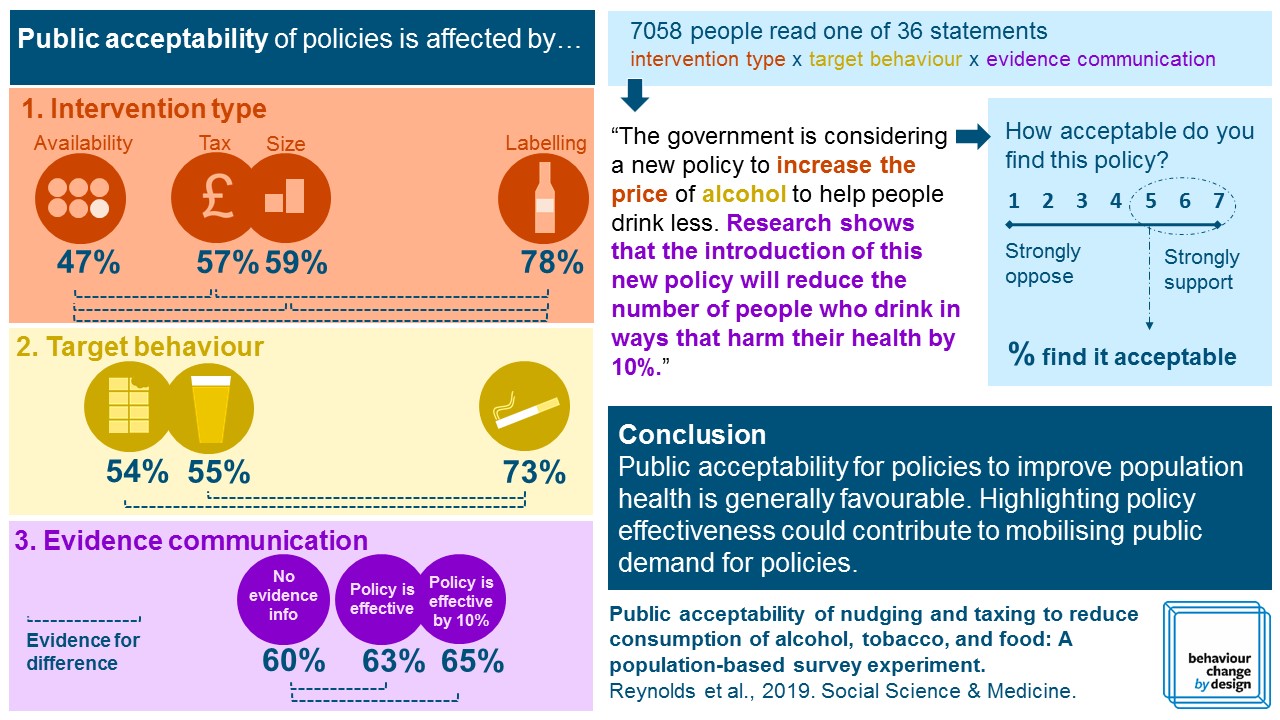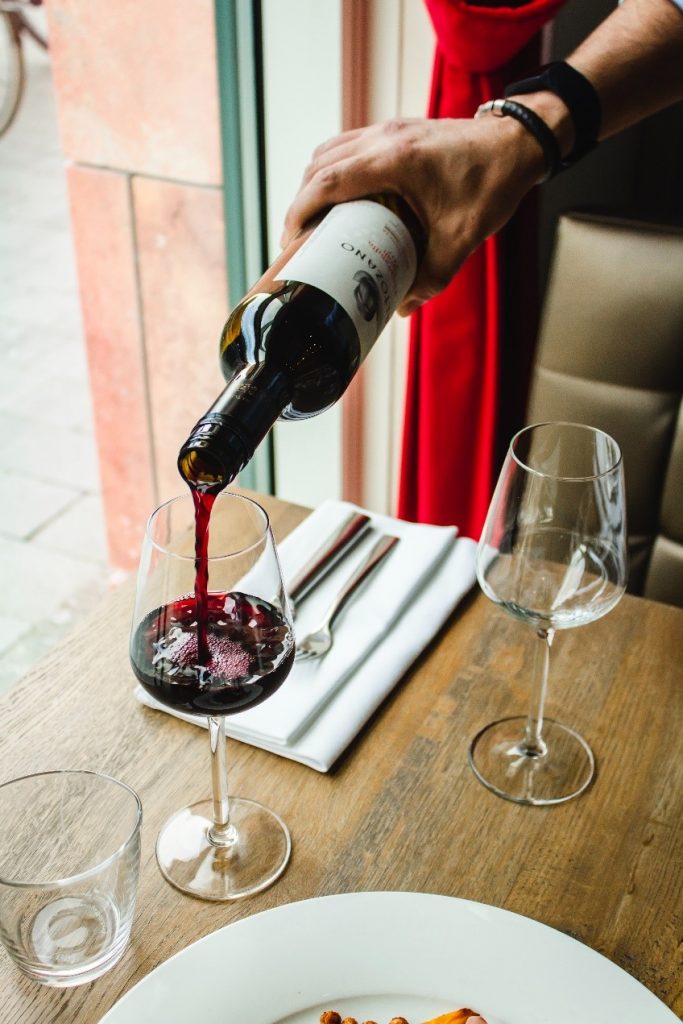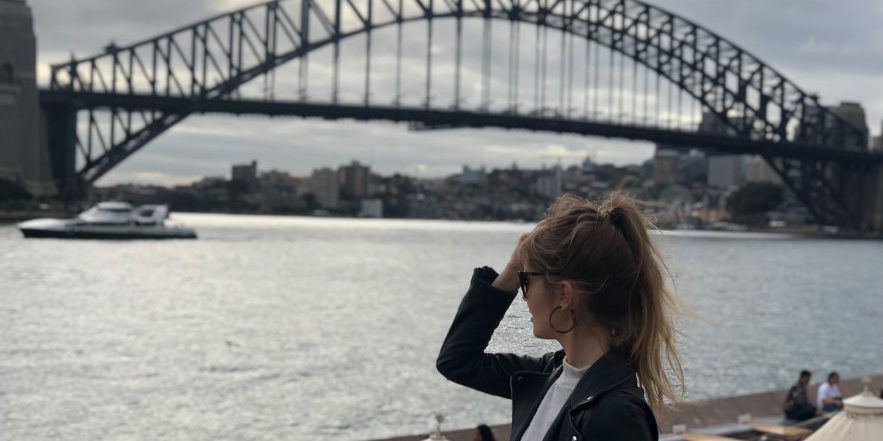Smoking, and excessive consumption of alcohol and unhealthy snacks are leading causes of years of life lost globally.  Promising interventions include nudging – changes to the physical environment to “nudge” people toward healthier behaviours – and taxation. Implementing such interventions often requires government intervention, which is made more likely by public support. We examined support for these interventions in a survey with an experimental design involving 7058 English adults.
Promising interventions include nudging – changes to the physical environment to “nudge” people toward healthier behaviours – and taxation. Implementing such interventions often requires government intervention, which is made more likely by public support. We examined support for these interventions in a survey with an experimental design involving 7058 English adults.
Overall 60% supported these policies with support varying by policy and behaviour. Putting graphic warning labels on products received strongest support (from 78%), followed by reducing product size (59%), then taxing the product (57%), and finally reducing the availability of the product (47%).
To read the findings of the study in full, click here.
Reynolds, J. P., Archer, S., Pilling, M., Kenny, M., Hollands, G. J., & Marteau, T. M. (2019). Public acceptability of nudging and taxing to reduce consumption of alcohol, tobacco, and food: A population-based survey experiment.

 This replication paper published in BMC Research Notes, adds to previous studies (
This replication paper published in BMC Research Notes, adds to previous studies ( Tess Langfield has won a 2019 ‘Health and Behavior International Collaborative Award’ to conduct a psychophysiological experiment in Sydney, Australia.
Tess Langfield has won a 2019 ‘Health and Behavior International Collaborative Award’ to conduct a psychophysiological experiment in Sydney, Australia.